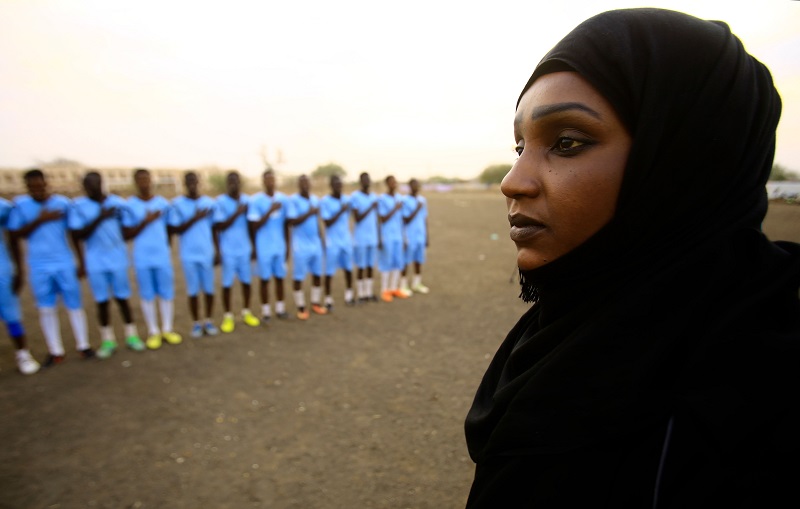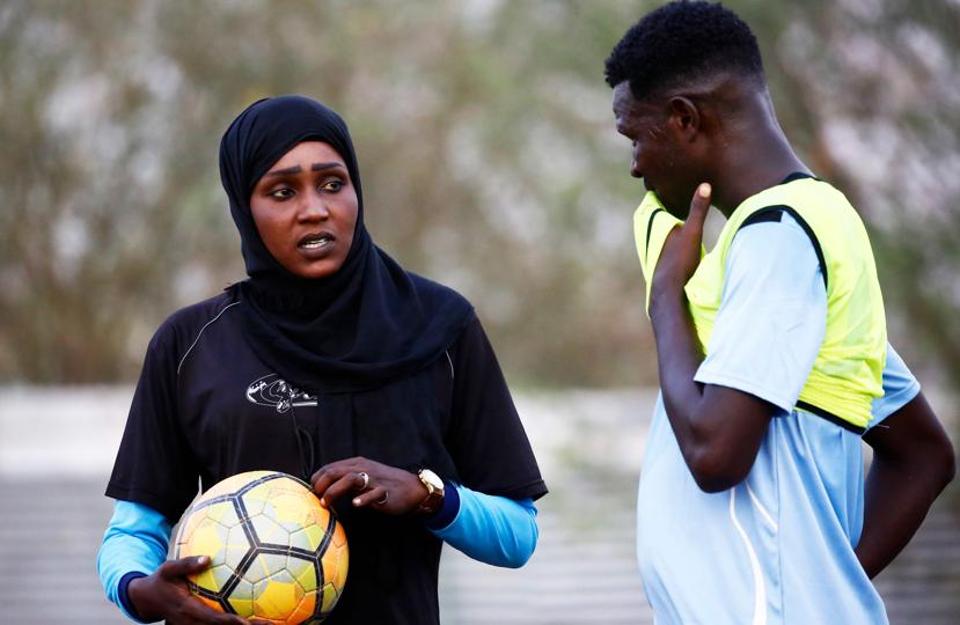Salma El Majidi is the first Arab and Sudanese woman to coach a men’s football team in the Arab world.
“I became a coach because there is still no scope for women’s football in Sudan,” El Majidi told an AFP reporter in eastern Sudan’s El Gedaref where she trains players of the El Ahly El Gedaref club.

In Sudan where a women’s national football team remains a distant dream, Salma al-Majidi knew the only way to take part in her beloved sport was to coach… and that had to be men. / AFP PHOTO / ASHRAF SHAZLY
Daughter of a retired policeman, Majidi was 16 when she fell in love with football. It came about as she watched her younger brother’s school team being coached. She was captivated by the coach’s instructions, his moves, and how he placed the marker cones at practice sessions, the AFP report reads.
“At the end of every training session, I discussed with him the techniques he used to coach the boys,” El Majidi said. “He saw I had a knack for coaching… and gave me a chance to work with him.”
Soon she was coaching the under-13 and under-16 teams of El Hilal club in Omdurman, the twin city of Khartoum. Later she coached the Sudanese second league men’s clubs of El Nasir, El Nahda, Nile Halfa and El Morada.
She is acknowledged by the Fédération Internationale de Football Association (FIFA) as the first Arab and Sudanese woman to coach a men’s football team in the Arab world.
Women football
Nowadays, Sudan has only one women’s football team, the Women’s Challenge Team. It was established by a group of young Sudanese women at the Comboni playground in downtown Khartoum in 2001.
The team played its first competitive match in 2006. Eight years later, in 2014, the members, divided into two teams, played a match in Khartoum. They women players were cheered by large numbers of fans, representatives of civil society organisations, and some foreign diplomats.
The team continues to lack recognition of FIFA. In 2012, in response to a question from FIFA regarding the feasibility of creating a women team, the Islamic Fiqh Council in Sudan issued a fatwa (a religious order) deeming a women’s football team “an immoral act”.
The coach of the Women’s Challenge Team, Ahmed Babikir, told Al Jazeera in 2015 that Sudan used to have many women’s teams in the past. “We need to go back to that,” he said. “FIFA should not provide the Sudanese Football Association with any funding until they form more women’s teams and support existing ones.”

